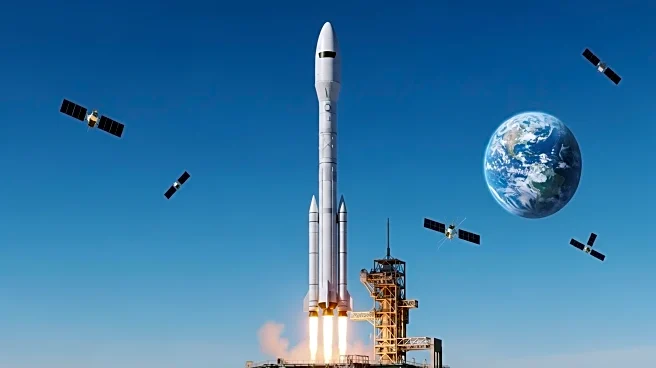What's Happening?
SpaceX successfully launched its 37th Falcon 9 rocket from Vandenberg Space Force Base, California, carrying Luxembourg's NAOS satellite and several other rideshare payloads. The launch took place at 11:53 a.m. PDT, marking another milestone for SpaceX's reusable rocket technology. The NAOS satellite, developed by OHB Italia, is an Earth-observing satellite designed for Luxembourg's government and military, capable of capturing high-resolution images. Originally slated for a Vega-C rocket launch, the satellite was switched to SpaceX's Falcon 9 following a previous mission failure. Alongside NAOS, the mission included payloads from various international companies, such as Planet's Gen 1 Pelican satellites and India's Dhruva Space's LEAP-1, among others.
Why It's Important?
This launch underscores SpaceX's growing role in the global satellite launch market, providing reliable and cost-effective access to space for a diverse range of international clients. The inclusion of Luxembourg's NAOS satellite highlights the strategic importance of space-based observation capabilities for national security and governmental applications. Additionally, the rideshare model exemplifies a shift towards more collaborative and economically viable space missions, allowing smaller companies and countries to access space technology. This mission also reflects the increasing demand for high-resolution Earth imagery, driven by advancements in AI and data analytics, which are crucial for sectors like agriculture, urban planning, and environmental monitoring.
What's Next?
Following this successful launch, SpaceX is expected to continue its aggressive launch schedule, further solidifying its position as a leader in the commercial space industry. The NAOS satellite will begin its operational phase, providing valuable data to Luxembourg's government. Meanwhile, companies like Planet and Dhruva Space will likely continue to expand their satellite constellations, leveraging the data for various commercial and scientific applications. The success of this mission may also encourage more countries and companies to consider SpaceX for future satellite launches, potentially leading to more international collaborations in space exploration and technology.










